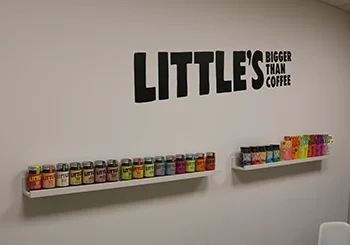The Impact of Artificial Intelligence on Labelling Machinery
In the rapidly evolving landscape of industrial automation, Artificial Intelligence (AI) is proving to be a transformative force, reshaping traditional processes across a wide range of sectors. One area seeing particularly profound change is labelling machinery, where AI is improving everything from precision and speed to adaptability and quality control.
The integration of AI into labelling machines is more than a technological upgrade — it’s a fundamental shift that enhances how industries manage product identification, compliance, and packaging workflows. From smart sensors to advanced computer vision, AI is redefining the future of automatic labelling systems.
Enhanced Precision and Speed
A core benefit of incorporating AI into the labelling process is its ability to dramatically improve both precision and speed. Traditional labelling systems typically rely on static programming, meaning they follow fixed parameters regardless of variations in production. This lack of flexibility can lead to misalignment, waste, or stoppages.
AI labelling machines, on the other hand, leverage real-time data and machine learning algorithms to dynamically adjust label placement. These systems can detect minor differences in product positioning or orientation and correct them mid-process, delivering consistent results even at high speeds.
This not only reduces human intervention but also minimises costly rework — particularly beneficial in high-volume production environments such as FMCG, cosmetics, or industrial manufacturing.
Dynamic Adaptability Across Product Lines
Today’s manufacturers deal with an increasingly diverse range of SKUs, packaging types, and regulatory requirements. AI empowers automatic labelling systems to handle this complexity with ease.
Using machine vision technology, AI-enabled labelling machines can recognise product shapes, sizes, materials, and orientations in real time. The system can then auto-adjust to ensure perfect label placement — regardless of whether it’s dealing with curved surfaces, soft packaging, or variable label sizes.
This dynamic adaptability is especially valuable in industries such as:
- Food and Beverage, where seasonal packaging, special promotions, and unique shapes are common
- Health and Beauty, where precision and branding consistency are essential
- Pharmaceuticals, where strict labelling regulations must be met across different packaging formats
By removing the need for manual recalibration or machine downtime between product runs, AI significantly boosts uptime and throughput.
Advanced Quality Control and Error Prevention
AI doesn’t just help you apply labels faster — it also helps ensure they’re applied correctly. With integrated quality control, AI-powered labelling machines can identify and correct errors in real time.
Machine learning algorithms are trained to spot issues like skewed labels, air bubbles, torn edges, or unreadable print. In regulated industries such as pharmaceuticals or electronics, where label accuracy is legally enforced, this built-in verification is invaluable.
Additionally, the system can detect inconsistencies in label content — from incorrect barcodes to missing batch numbers — reducing the risk of product recalls or compliance violations.
Intelligent Data for Process Optimisation
Another significant benefit of AI in labelling systems is the continuous flow of production data it generates. This data is more than just operational logs — it’s a rich source of insights for strategic improvement.
AI algorithms analyse performance data across production shifts, machines, and product types to uncover:
- Patterns in downtime or bottlenecks
- Label waste or overuse
- Operator inefficiencies
- Predictive maintenance needs
Armed with this intelligence, manufacturers can fine-tune their labelling operations, optimise labour and material use, and make better-informed capital investment decisions.
AI Labelling Machines: A Strategic Advantage
The introduction of artificial intelligence in labelling machinery marks a significant evolution in how businesses approach automation. Whether you’re looking to improve output, reduce waste, enhance product quality, or gain a competitive edge, AI is unlocking new potential in labelling operations.
And as AI technologies continue to advance, the capabilities of labelling systems will only grow, making them smarter, faster, and more connected to the broader production ecosystem.
Ready to Modernise Your Labelling Operations?
Atwell Labellers specialises in automatic labelling systems designed to meet the demands of modern manufacturing. Whether you’re exploring the benefits of AI, upgrading your existing line, or investing in new labelling automation, we can help.
Contact our expert team today to learn more about AI labelling technology and discover how it can transform your production line.
Can we help you?
Technical Helpline
Contact by Telephone:
+44 (0)1444 237 804


